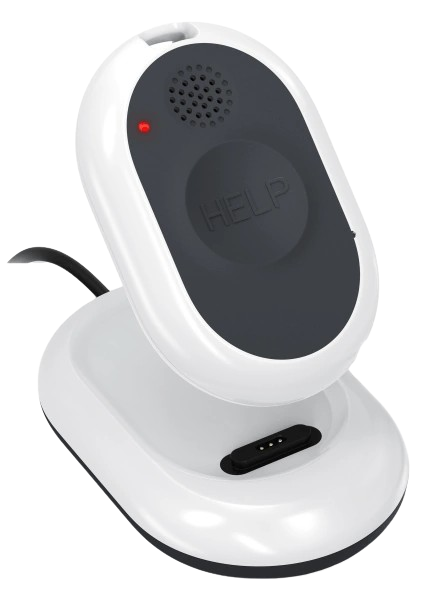In Delaware, industries such as home healthcare, utilities, maintenance, and field services rely heavily on lone workers—employees who perform tasks without immediate supervision or coworkers nearby. These individuals face unique safety risks due to their isolation. While Delaware does not administer its own occupational safety and health program, employers in the state must comply with federal OSHA regulations.
This guide outlines how lone worker safety is managed in Delaware and what employers can do to meet their responsibilities effectively.
On This Page
Our Guide To Lone Worker Safety Policy And Legislation In Delaware
Delaware is a federal OSHA state, meaning it does not have a state-specific occupational safety and health program. Instead, workplace safety and health are governed by the Occupational Safety and Health Administration (OSHA) at the federal level. Although OSHA does not have a regulation exclusively focused on lone workers, employers are still required to address the hazards associated with working alone under OSHA’s General Duty Clause, which mandates a workplace free of recognized hazards.
This includes identifying the risks associated with isolated work—such as delayed emergency response, environmental dangers, or the threat of violence—and implementing practical controls to reduce or eliminate those risks.
How Delaware Defines A Lone Worker
Delaware law does not provide an official definition of “lone worker,” but the term is broadly understood to describe any employee who works without close or direct supervision and lacks immediate access to assistance in the event of an incident or emergency.
Lone workers in Delaware can be found in roles such as:
- Home healthcare and hospice services
- Utility and field maintenance technicians
- Security guards working night shifts or at remote sites
- Property management and real estate professionals
- Janitorial and cleaning services
- Delivery drivers and mobile service workers
Because these individuals are often physically isolated, employers must assess and mitigate the risks specific to their job functions and environments.
Employing A Lone Worker In Delaware
Delaware employers are required to follow federal OSHA standards when it comes to worker safety. When managing employees who work alone, best practices include:
- Risk Assessment: Analyze the nature of lone work activities to identify job-specific hazards.
- Communication Plans: Establish regular check-in protocols or utilize mobile safety apps to maintain consistent communication.
- Emergency Preparedness: Train lone workers to handle emergency situations and ensure they have quick access to help when needed.
- Safety Technology: Use GPS-enabled safety devices or mobile apps with panic alerts and automatic check-in features.
- Policy Development: Integrate lone worker protocols into your broader health and safety plan, with written procedures and employee training.
Whether employees are operating in urban areas like Wilmington or rural parts of the state, the absence of nearby help requires a proactive, structured approach to safety.
Learn How You Can Protect Your Employees With Loneworker.com

With Loneworker.com you can be equipped with the knowledge and the means to protect your employees and protect your business. Contact us today to learn more about how Loneworker.com can protect you and your employees.
How The Safe Lone Worker App Can Protect Delaware Lone Workers And Employers
Digital tools like the Safe Lone Worker app make it easier for employers to protect employees working in isolation. The app provides real-time location tracking, scheduled check-ins, fall detection, and panic button alerts—ensuring that help can be dispatched quickly in case of an emergency.
In Delaware, where private employers must meet federal OSHA requirements, technology like this helps demonstrate compliance with safety obligations. It also provides a record of communication and monitoring that can be valuable in both audits and incident investigations.
Delaware Lone Worker Policies
Delaware does not operate its own occupational safety and health program and is therefore regulated by federal OSHA. While there is no specific OSHA rule dedicated solely to lone workers, the General Duty Clause obligates all employers to identify and control workplace hazards—including those posed by working alone.
Organizations in both the private and public sectors are encouraged to regularly consult the OSHA website and seek professional guidance to ensure they remain compliant with current workplace safety standards. This content is intended for general informational purposes and should not replace legal advice or official regulatory consultation.
Delaware Lone Worker Resources
OHS Contact Centre
- 1-866-415-8690
CDC / NIOSH
- 800-232-4636

Affordable Monitoring For Lone Workers In Delaware

-
 Monitoring Your Employees' Safety
Monitoring Your Employees' Safety
-
 GPS Tracking And Monitoring
GPS Tracking And Monitoring
-
 Man Down Panic Alerts
Man Down Panic Alerts
-
 24/7 Protection Anywhere
24/7 Protection Anywhere
Lone Worker Legislation
Lone Worker Safety Policies And Legislation By State
-
 Alabama State Safety Policies And Legislation
Alabama State Safety Policies And Legislation
-
 Alaska State Safety Policies And Legislation
Alaska State Safety Policies And Legislation
-
 Arizona State Safety Policies And Legislation
Arizona State Safety Policies And Legislation
-
 Arkansas State Safety Policies And Legislation
Arkansas State Safety Policies And Legislation
-
 California State Safety Policies And Legislation
California State Safety Policies And Legislation
-
 Colorado State Safety Policies And Legislation
Colorado State Safety Policies And Legislation
-
 Connecticut State Safety Policies And Legislation
Connecticut State Safety Policies And Legislation
-
 Delaware State Safety Policies And Legislation
Delaware State Safety Policies And Legislation
-
 Florida State Safety Policies And Legislation
Florida State Safety Policies And Legislation
-
 Georgia State Safety Policies And Legislation
Georgia State Safety Policies And Legislation
-
 Hawaii State Safety Policies And Legislation
Hawaii State Safety Policies And Legislation
-
 Idaho State Safety Policies And Legislation
Idaho State Safety Policies And Legislation
-
 Illinois State Safety Policies And Legislation
Illinois State Safety Policies And Legislation
-
 Indiana State Safety Policies And Legislation
Indiana State Safety Policies And Legislation
-
 Iowa State Safety Policies And Legislation
Iowa State Safety Policies And Legislation
-
 Kansas State Safety Policies And Legislation
Kansas State Safety Policies And Legislation
-
 Kentucky State Safety Policies And Legislation
Kentucky State Safety Policies And Legislation
-
 Louisiana State Safety Policies And Legislation
Louisiana State Safety Policies And Legislation







